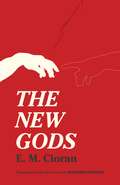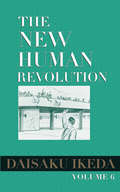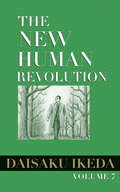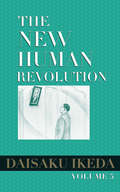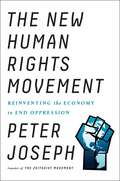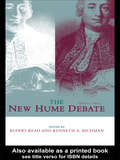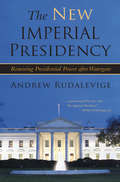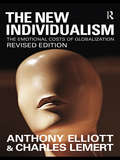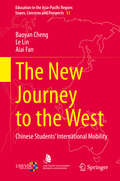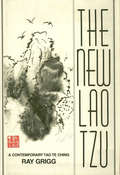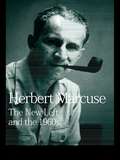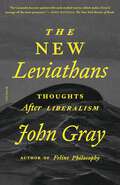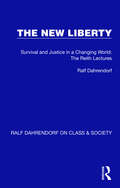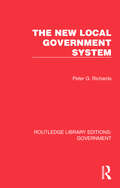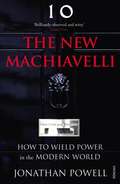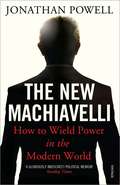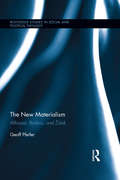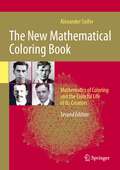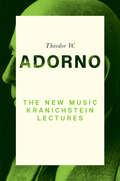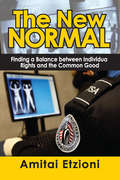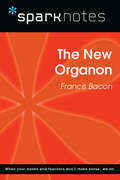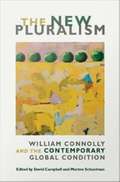- Table View
- List View
The New Gods
by E. M. CioranDubbed OC Nietzsche without his hammerOCO by literary critic James Wood, the Romanian philosopher E. M. Cioran is known as much for his profound pessimism and fatalistic approach as for the lyrical, raging prose with which he communicates them. Unlike many of his other works, such as "On the Heights of Despair" and "Tears and Saints," "The New Gods" eschews his usual aphoristic approach in favor of more extensive and analytic essays. aReturning to many of CioranOCOs favorite themes, "The New Gods "explores humanityOCOs attachment to gods, death, fear, and infirmity, in essays that vary widely in form and approach. In OC PaleontologyOCO Cioran describes a visit to a museum, finding the relatively pedestrian destination rife with decay, death, and human weakness. In another chapter, Cioran explores suicide in shorter, impressionistic bursts, while OC The DemiurgeOCO is a shambolic exploration of manOCOs relationship with good, evil, and God. All the while, "The New Gods "reaffirms CioranOCOs belief in OC lucid despair, OCO and his own signature mixture of pessimism and skepticism in language that never fails to be a pleasure. Perhaps his prose itself is an argument against CioranOCOs near-nihilism: there is beauty in his books. "
The New Human Revolution, Vol. 6 (The New Human Revolution)
by Daisaku IkedaThrough this novelized history of the Soka Gakkai—one of the most dynamic, diverse, and empowering movements in the world today—readers will discover the organization's goals and achievements even as they find inspiring and practical Buddhist wisdom for living happily and compassionately in today's world. The book recounts the stories of ordinary individuals who faced tremendous odds in transforming their lives through the practice of Nichiren Buddhism and in bringing Buddhism's humanistic teachings to the world. This inspiring narrative provides readers with the principles with which they can positively transform their own lives for the better and realize enduring happiness for themselves and others.
The New Human Revolution, Vol. 7 (The New Human Revolution)
by Daisaku IkedaThrough this novelized history of the Soka Gakkai—one of the most dynamic, diverse, and empowering movements in the world today—readers will discover the organization's goals and achievements even as they find inspiring and practical Buddhist wisdom for living happily and compassionately in today's world. The book recounts the stories of ordinary individuals who faced tremendous odds in transforming their lives through the practice of Nichiren Buddhism and in bringing Buddhism's humanistic teachings to the world. This inspiring narrative provides readers with the principles with which they can positively transform their own lives for the better and realize enduring happiness for themselves and others.
The New Human Revolution, vol. 5 (The New Human Revolution)
by Daisaku IkedaThrough this novelized history of the Soka Gakkai—one of the most dynamic, diverse, and empowering movements in the world today—readers will discover the organization's goals and achievements even as they find inspiring and practical Buddhist wisdom for living happily and compassionately in today's world. The book recounts the stories of ordinary individuals who faced tremendous odds in transforming their lives through the practice of Nichiren Buddhism and in bringing Buddhism's humanistic teachings to the world. This inspiring narrative provides readers with the principles with which they can positively transform their own lives for the better and realize enduring happiness for themselves and others.
The New Human Rights Movement: Reinventing the Economy to End Oppression
by Peter JosephSociety is broken. We can design our way to a better one. In our interconnected world, self-interest and social-interest are rapidly becoming indistinguishable. If current negative trajectories remain, including growing climate destabilization, biodiversity loss, and economic inequality, an impending future of ecological collapse and societal destabilization will make "personal success" virtually meaningless. Yet our broken social system incentivizes behavior that will only make our problems worse. If true human rights progress is to be achieved today, it is time we dig deeper—rethinking the very foundation of our social system. In this engaging, important work, Peter Joseph, founder of the world's largest grassroots social movement—The Zeitgeist Movement—draws from economics, history, philosophy, and modern public-health research to present a bold case for rethinking activism in the 21st century. Arguing against the long-standing narrative of universal scarcity and other pervasive myths that defend the current state of affairs, The New Human Rights Movement illuminates the structural causes of poverty, social oppression, and the ongoing degradation of public health, and ultimately presents the case for an updated economic approach. Joseph explores the potential of this grand shift and how we can design our way to a world where the human family has become truly sustainable. The New Human Rights Movement reveals the critical importance of a unified activism working to overcome the inherent injustice of our system. This book warns against what is in store if we continue to ignore the flaws of our socioeconomic approach, while also revealing the bright and expansive future possible if we succeed. Will you join the movement?
The New Hume Debate: Revised Edition
by Rupert Read Kenneth A. RichmanFirst Published in 2004. Routledge is an imprint of Taylor & Francis, an informa company.
The New Immigration Federalism
by Pratheepan GulasekaramSince 2004, the United States has seen a flurry of state and local laws dealing with unauthorized immigrants. Though initially restrictionist, these laws have recently undergone a dramatic shift toward promoting integration. How are we to make sense of this new immigration federalism? What are its causes? And what are its consequences for the federal-state balance of power? In The New Immigration Federalism, Professors Pratheepan Gulasekaram and S. Karthick Ramakrishnan provide answers to these questions using a mix of quantitative, historical, and doctrinal legal analysis. In so doing they refute the popular 'demographic necessity' argument put forward by anti-immigrant activists and politicians. Instead, they posit that immigration federalism is rooted in a political process that connects both federal and subfederal actors: the Polarized Change Model. Their model captures not only the spread of restrictionist legislation but also its abrupt turnaround in 2012, projecting valuable insights for the future.
The New Imperial Presidency: Renewing Presidential Power after Watergate
by Andrew RudalevigeIn The Imperial Presidency, historian Arthur M. Schlesinger Jr. argued that the Nixon presidency had exceeded its constitutional scope and expanded its power in relation to other branches of government. Of course shortly after the work appeared, Watergate, the ending of the Vietnam War, and other developments led to a resurgence of congressional power in relation to the presidency, although that resurgence has faded as the Imperial Presidency has reasserted itself over recent decades. Rudalevige (political science, Dickinson College) charts these developments, concluding with a discussion of how the legislative deference to the proclaimed powers of the Bush administration in the wake of the September 11th attacks represented a speeded up example of a wider process. Annotation ©2006 Book News, Inc. , Portland, OR (booknews. com)
The New Individualism: The Emotional Costs of Globalization REVISED EDITION
by Anthony Elliott Prof Charles LemertThis is a new and revised edition of a book which has had a major impact upon the social sciences and public political debate. Anthony Elliott and Charles Lemert's THE NEW INDIVIDUALISM inspired readers with the dramatic suggestion that 'the reinvention craze' - from self-help and therapy culture to management restructurings and corporate downsizings - is central to a 'new individualism' sweeping the globe. Giving particular attention to the narratives of people seeking to define anew their lives in an age of globalization, the authors contend that an endless hunger for instant change and relentless emphasis on self-reinvention is fundamental to grasping the disorientating effects of the new individualism. This edition contains a substantial new Introduction in which Elliott and Lemert reply to some of the standard criticisms made of the theory of the new individualism, and also addresses the escalation of new individualist thinking in the wake of recent global crises.
The New Journey to the West: Chinese Students’ International Mobility (Education in the Asia-Pacific Region: Issues, Concerns and Prospects #53)
by Baoyan Cheng Le Lin Aiai FanThis book provides a comprehensive assessment of the cross-border mobility of Chinese students and addresses the questions of who in China chooses to study overseas, why they want to do so, and what the impacts of this mobility are on China’s social stratification. In addition, it explores the challenges that these students face in terms of adaptation and identity formation once they have arrived in the destination country. Adopting a push-and-pull framework to analyze the data, it offers a unique and insightful resource.
The New Lao Tzu
by Ray GriggA new interpretation of the Tao Te Ching, this book is a celebration of the Way of Harmony and Balance. Ray Grigg transforms what has been traditionally called the Tao Te Ching, what he calls the Lao Tzu, from the mysterious to the meaningful. He accomplishes this by abandoning the historical convention of a literal reading of the Chinese texts. The result is a poetic expression of ancient wisdom in a language that readers can approach directly. The wisdom of the Lao Tzu rests in its ability to tease confusion into insight that is beyond the confinement of intellectual understanding. Beautifully illustrated with ink drawings by Bill Gaetz, The New Lao Tzu demonstrates that living the wisdom of the Lao Tzu requires more instinct than reason, more intuition than argument.
The New Lao Tzu
by Ray GriggA new interpretation of the Tao Te Ching, this book is a celebration of the Way of Harmony and Balance. Ray Grigg transforms what has been traditionally called the Tao Te Ching, what he calls the Lao Tzu, from the mysterious to the meaningful. He accomplishes this by abandoning the historical convention of a literal reading of the Chinese texts. The result is a poetic expression of ancient wisdom in a language that readers can approach directly. The wisdom of the Lao Tzu rests in its ability to tease confusion into insight that is beyond the confinement of intellectual understanding. Beautifully illustrated with ink drawings by Bill Gaetz, The New Lao Tzu demonstrates that living the wisdom of the Lao Tzu requires more instinct than reason, more intuition than argument.
The New Left and the 1960s: Collected Papers of Herbert Marcuse, Volume 3 (Herbert Marcuse: Collected Papers #3)
by Herbert MarcuseThe New Left and the 1960s is the third volume of Herbert Marcuse's collected papers. In 1964, Marcuse published a major study of advanced industrial society, One Dimensional Man, which was an important influence on the young radicals who formed the New Left. Marcuse embodied many of the defining political impulses of the New Left in his thought and politics - hence a younger generation of political activists looked up to him for theoretical and political guidance. The material collected in this volume provides a rich and deep grasp of the era and the role of Marcuse in the theoretical and political dramas of the day.This volume contains articles, letters, talks, and interviews including: "On the New Left," a transcription of the 1968 talk at the Guardian newspaper's twentieth anniversary; "Reflections on the French Revolution," which contains comments on the 1968 French student and worker uprising; "Liberation from the Affluent Society," which presents Marcuse's contribution to the 1967 Dialectics of Liberations conference; and "United States: Questions of Organization and the Revolutionary Subject," a conversation between Marcuse and the German writer Hans Magnus Enzenberger, published here in English for the first time.Edited by Douglas Kellner, this volume will be of interest to all those previously unfamiliar with Herbert Marcuse, generally acknowledged as a major figure in the intellectual and social mileux of the 1960s and 1970s, as well as to specialists, who will here have access to papers and articles collected in one volume for the first time.
The New Leviathans: Thoughts After Liberalism
by John GrayA bold, provocative reckoning with our current political delusions and dysfunctions.Ever since its publication in 1651, Thomas Hobbes’s Leviathan has unsettled and challenged how we understand the world. Condemned and vilified by each new generation, his cold political vision continues to see through any number of human political and ethical vanities.In his wonderfully stimulating book The New Leviathans, John Gray allows us to understand the world of the 2020s with all its contradictions, moral horrors, and disappointments. The collapse of the USSR ushered in an era of near apoplectic triumphalism in the West: a genuine belief that a rational, liberal, well-managed future now awaited humankind and that tyranny, nationalism, and unreason lay in the past. Since then, so many terrible events have occurred and so many poisonous ideas have flourished, and yet our liberal certainties treat them as aberrations that will somehow dissolve. Hobbes would not be so confident.Filled with fascinating and challenging observations, The New Leviathans is a powerful meditation on historical and current folly. As a species we always seem to be struggling to face the reality of base and delusive human instincts. Might a more self-aware, realistic, and disabused ethics help us?
The New Liberty: Survival and Justice in a Changing World: The Reith Lectures (Ralf Dahrendorf on Class & Society #4)
by Ralf DahrendorfOriginally published in 1975, Ralf Dahrendorf’s Reith Lectures were an important contribution to public debate, exploring as they do the theme of the new liberty and being concerned to refashion liberalism to cope with the problems and tension of contemporary societies. The analysis covers endemic economic problems, such as growth, inflation and development, the complex nature of organizations, and the problems of political representation.
The New Local Government System (Routledge Library Editions: Government)
by Peter G. RichardsOriginally published in 1956, this book outlines the history of delegation in local government since the establishment of county councils in 1888. It describes the use made of delegation over a wide range of council services. The technique of delegation has become more important in recent years and represents the compromise of the competing claims of county and district councils to control local government. This book is an important contribution both to the detailed study of local administration and to the debate on the future pattern of local government.
The New Machiavelli: How to Wield Power in the Modern World
by Jonathan PowellIllustrating each of Machiavelli's maxims with a description of events that occurred during Tony Blair's time as prime minister, Blair's former close adviser gives a devastating, frank, and insightful analysis of how power is wielded in the modern world In a 21st-century reworking of Niccolò Machiavelli's influential masterpiece, Jonathan Powell argues that the Italian philosopher is misunderstood, and explains how the lessons derived from his experience as an official in 15th-century Florence can still apply today. Drawing on his own unpublished diaries during his time as Blair's chief of staff, Powell gives a frank account of the intimate details of the internal political struggles, including the failure to join the Euro or hold a referendum on the European constitution; the wars in Iraq, Afghanistan, and Kosovo; the peace negotiations in Northern Ireland; and the relations with Clinton, Bush, and Chirac. Short, stark, and clear -- much like The Prince -- this gripping account of life inside "the bunker" of Number 10 draws lessons from those experiences, not just for political leaders but for anyone who has access to the levers of power.
The New Machiavelli: How to Wield Power in the Modern World
by Jonathan PowellThe New Machiavelli is a gripping account of life inside 'the bunker' of Number 10. In his twenty-first century reworking of Niccolo Machiavelli's influential masterpiece, The Prince, Jonathan Powell - Tony Blair's Chief of Staff from 1994 - 2007 - recounts the inside story of that period, drawing on his own unpublished diaries. Taking the lessons of Machiavelli derived from his experience as an official in fifteenth-century Florence, Powell shows how these lessons can still apply today. Illustrating each of Machiavelli's maxims with a description of events that occurred during Tony Blair's time as Prime Minister, The New Machiavelli is designed to be The Prince for modern times.
The New Materialism: Althusser, Badiou, and Žižek (Routledge Studies in Social and Political Thought #102)
by Geoff PfeiferAlain Badiou and Slavoj Žižek have become two of the dominant voices in contemporary philosophy and critical theory. In this book, Geoff Pfeifer offers an in-depth look at their respective views. Using Louis Althusser’s materialism as a starting point—which, as Pfeifer shows, was built partially as a response to the Marxism of the Parti Communiste Français and partially in dialogue with other philosophical movements and intellectual currents of its times—the book looks at the differing ways in which both Badiou’s and Žižek’s work attempt to respond to issues that arise within the Althusserian edifice. Pfeifer argues here that, ultimately, Žižek’s materialism succeeds in responding to these issues in ways that Badiou’s does not. In building this argument, Pfeifer engages not only with the work of Althusser, Badiou, and Žižek and their intellectual backgrounds, but also with much of the contemporary scholarship surrounding these thinkers. As such, Pfeifer’s book is an important addition to the ongoing debates within contemporary critical theory.
The New Mathematical Coloring Book: Mathematics of Coloring and the Colorful Life of Its Creators
by Alexander SoiferThe New Mathematical Coloring Book (TNMCB) includes striking results of the past 15-year renaissance that produced new approaches, advances, and solutions to problems from the first edition. A large part of the new edition “Ask what your computer can do for you,” presents the recent breakthrough by Aubrey de Grey and works by Marijn Heule, Jaan Parts, Geoffrey Exoo, and Dan Ismailescu. TNMCB introduces new open problems and conjectures that will pave the way to the future keeping the book in the center of the field. TNMCB presents mathematics of coloring as an evolution of ideas, with biographies of their creators and historical setting of the world around them, and the world around us.A new thing in the world at the time, TMCB I is now joined by a colossal sibling containing more than twice as much of what only Alexander Soifer can deliver: an interweaving of mathematics with history and biography, well-seasoned with controversy and opinion. –Peter D. Johnson, Jr.Auburn UniversityLike TMCB I, TMCB II is a unique combination of Mathematics, History, and Biography written by a skilled journalist who has been intimately involved with the story for the last half-century. …The nature of the subject makes much of the material accessible to students, but also of interest to working Mathematicians. … In addition to learning some wonderful Mathematics, students will learn to appreciate the influences of Paul Erdős, Ron Graham, and others.–Geoffrey ExooIndiana State UniversityThe beautiful and unique Mathematical coloring book of Alexander Soifer is another case of “good mathematics”, containing a lot of similar examples (it is not by chance that Szemerédi’s Theorem story is included as well) and presenting mathematics as both a science and an art…–Peter MihókMathematical Reviews, MathSciNetA postman came to the door with a copy of the masterpiece of the century. I thank you and the mathematics community should thank you for years to come. You have set a standard for writing about mathematics and mathematicians that will be hard to match.– Harold W. KuhnPrinceton UniversityI have never encountered a book of this kind. The best description of it I can give is that it is a mystery novel… I found it hard to stop reading before I finished (in two days) the whole text. Soifer engages the reader's attention not only mathematically, but emotionally and esthetically. May you enjoy the book as much as I did!– Branko GrünbaumUniversity of WashingtonI am in absolute awe of your 2008 book.–Aubrey D.N.J. de GreyLEV Foundation
The New Music: Kranichstein Lectures
by Theodor W. AdornoA year after the end of the Second World War, the first International Summer Course for New Music took place in the Kranichstein Hunting Lodge, near the city of Darmstadt in Germany. The course, commonly referred to later as the Darmstadt course, was intended to familiarize young composers and musicians with the music that, only a few years earlier, had been denounced as degenerate by the Nazi regime, and it soon developed into one of the most important events in contemporary music. Having returned to Germany in 1949 from exile in the United States, Adorno was a regular participant at Darmstadt from 1950 on. In 1955 he gave a series of lectures on the young Schoenberg, using the latter’s work to illustrate the relation between tradition and the avant-garde. Adorno’s three double-length lectures on the young Schoenberg, in which he spoke as a passionate advocate for the composer whom Boulez had declared dead, were his first at Darmstadt to be recorded on tape. The relation between tradition and the avant-garde was the leitmotif of the lectures that followed, which continued over the next decade. Adorno also dealt in detail with problems of composition in contemporary music, and he often accompanied his lectures with off-the-cuff musical improvisations. The five lecture courses he gave at Darmstadt between 1955 and 1966 were all recorded and subsequently transcribed, and they are published here for the first time in English. This volume is a unique document on the theory and history of the New Music. It will be of great value to anyone interested in the work of Adorno and critical theory, in German intellectual and cultural history, and in the history of modern music.
The New Normal: Finding a Balance Between Individual Rights and the Common Good
by Amitai EtzioniAmitai Etzioni argues that societies must find a way to balance individual rights and the common good. This point of balance may change as new technologies develop, the natural and international environments change, and new social forces arise. Some believe the United States may be unduly short-changing individual rights that need to be better protected. Specifically, should the press be granted more protection? Or should its ability to publish state secrets be limited? Should surveillance of Americans and others be curtailed? Should American terrorists be treated differently from others? How one answers these questions, Etzioni shows, invites a larger fundamental question: Where is the proper point of balance between rights and security? Etzioni implements the social philosophy, "liberal communitarianism." Its key assumptions are that neither individual rights nor the common good should be privileged, that both are core values, and that a balance is necessary between them. Etzioni argues that we need to find a new balance between our desire for more goods, services, and affluence, particularly because economic growth may continue to be slow and jobs anemic. The key question is what makes a good life, especially for those whose basic needs are sated.
The New Organon
by Francis Bacon Michael Silverthorne Lisa JardineWhen the New Organon appeared in 1620, part of a six-part programme of scientific inquiry entitled 'The Great Renewal of Learning', Francis Bacon was at the high point of his political career, and his ambitious work was groundbreaking in its attempt to give formal philosophical shape to a new and rapidly emerging experimentally-based science. Bacon combines theoretical scientific epistemology with examples from applied science, examining phenomena as various as magnetism, gravity, and the ebb and flow of the tides, and anticipating later experimental work by Robert Boyle and others. His work challenges the entire edifice of the philosophy and learning of his time, and has left its mark on all subsequent philosophical discussions of scientific method. This volume presents a new translation of the text into modern English by Michael Silverthorne, and an introduction by Lisa Jardine that sets the work in the context of Bacon's scientific and philosophical activities.
The New Organon (SparkNotes Philosophy Guide)
by SparkNotesThe New Organon (SparkNotes Philosophy Guide) Making the reading experience fun! SparkNotes Philosophy Guides are one-stop guides to the great works of philosophy–masterpieces that stand at the foundations of Western thought. Inside each Philosophy Guide you&’ll find insightful overviews of great philosophical works of the Western world.
The New Pluralism: William Connolly and the Contemporary Global Condition
by David Campbell Morton SchoolmanWilliam Connolly, one of the best-known and most important political theorists writing today, is a principal architect of the "new pluralism. " In this volume, leading thinkers in contemporary political theory and international relations provide a comprehensive investigation of the new pluralism, Connolly's contributions to it, and its influence on the fields of political theory and international relations. Together they trace the evolution of Connolly's ideas, illuminating his challenges to the "old," conventional pluralist theory that dominated American and British political science and sociology in the second half of the twentieth century. The contributors show how Connolly has continually revised his ideas about pluralism to take into account radical changes in global politics, incorporate new theories of cognition, and reflect on the centrality of religion in political conflict. They engage his arguments for an agonistic democracy in which all fundamentalisms become the objects of politicization, so that differences are not just tolerated but are productive of debate and the creative source of a politics of becoming. They also explore the implications of his work, often challenging his views to widen the reach of even his most recently developed theories. Connolly's new pluralism will provoke all citizens who refuse to subordinate their thinking to the regimes in which they reside, to religious authorities tied to the state, or to corporate interests tied to either. The New Pluralism concludes with an interview with Connolly in which he reflects on the evolution of his ideas and expands on his current work. Contributors: Roland Bleiker, Wendy Brown, David Campbell, William Connolly, James Der Derian, Thomas L. Dumm, Kathy E. Ferguson, Bonnie Honig, George Kateb, Morton Schoolman Michael J. Shapiro, Stephen K. White
